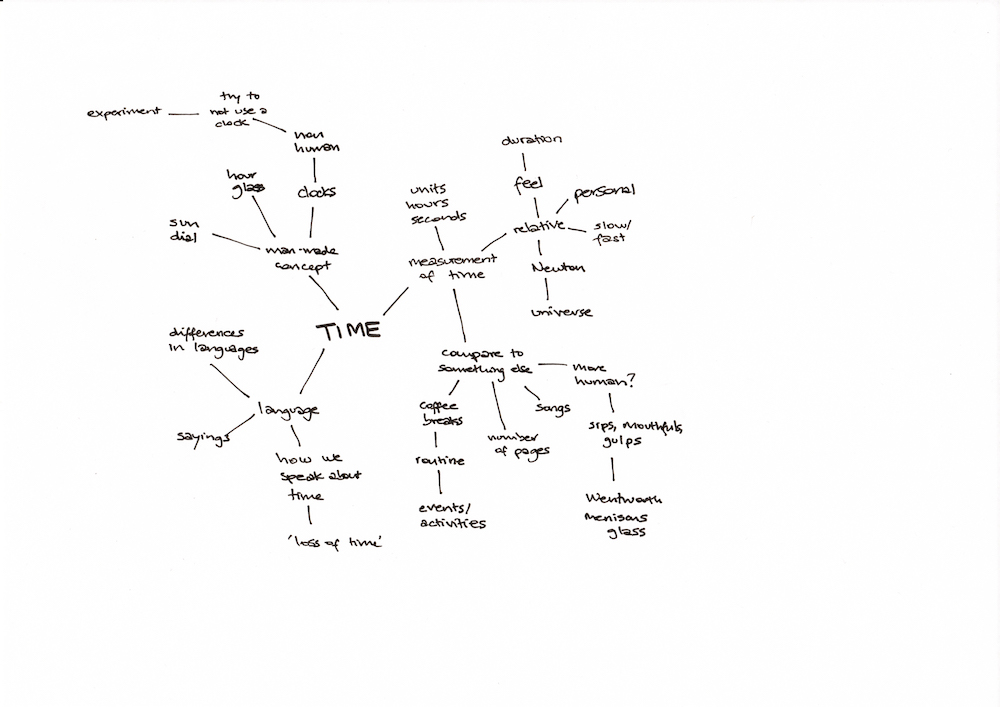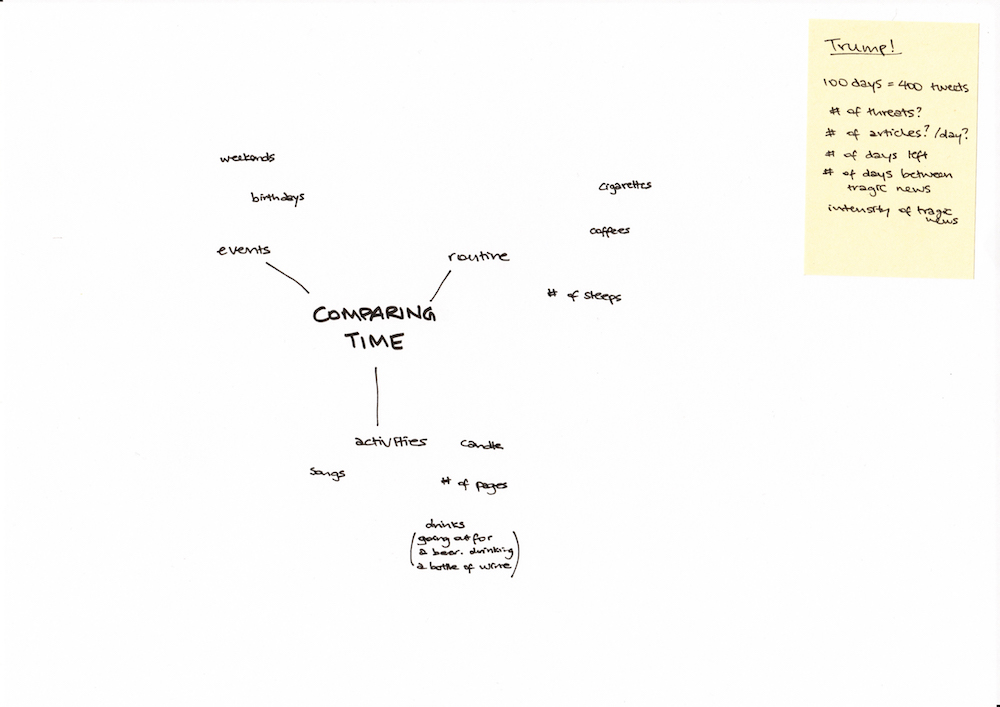Karina/measurement of time - essay draft
WHAT ARE YOU READING
— Connecting previous research —
Robert Levine - A Geography of Time
clock-time and event-time
Philip Zimbardo
Present oriented time perspective - living in the now
Future oriented time perspective - what will happen next?
— Extending thought —
Norbert Wiener - Cybernetics: or Control and Communication in the Animal and the Machine
Newtonian and Bergsonian Time:
Bergsonian Time - 2 levels / dimension of time: in science and for an individual
“Bergson became aware that the moment one attempted to measure a moment, it would be gone: one measures an immobile, complete line, whereas time is mobile and incomplete. For the individual, time may speed up or slow down, whereas, for science, it would remain the same.” wiki
“time is purely and simply an item of data relating to our experience… and we want to hold onto that experience” - Bergson (1968)
Newtonian Time - absolute time in the universe, could only be understood mathematically. Individuals are only capable of perceiving relative time
“Absolute, true and mathematical time, of itself, and from its own nature flows equably without regard to anything external, and by another name is called duration: relative, apparent and common time, is some sensible and external (whether accurate or unequable) measure of duration by the means of motion, which is commonly used instead of true time …” - Newton
Henri Bergson - Matter and Memory
Duration
Henri Bergson believed that time was neither a real homogeneous medium nor a mental construct, but possesses what he referred to as duration. Duration, in Bergson's view, was creativity and memory as an essential component of reality. - from wiki
Research into
Different types of calendars around the world and in time
- Chinese (currently used)
- Ethiopian (currently used)
- Gregorian (currently used)
- Hebrew (currently used)
- Islamic (currently used)
- Persian (currently used)
- French Republican Calendar (late 1793 to 1805 and for 18 days in 1871)
Humorous measurements / units
- Helen (from Troy, measurement of beauty and it’s consequences)
- Jiffy (interval of time between system timer interruptions ±1-10 milliseconds)
- Rictus (earthquake intensity on a base of news coverage)
- Sheppey (measure of distance equal to about 1.4 km, defined as the closest distance at which sheep remain picturesque)
- Warhol (measurement of fame)
- Wheaton (measurement of Twitter followers)
WHY ARE YOU INTERESTED
A project I’ve wanted to make two years ago:
Measuring units vary around the world, whether distance, weight, height. Yet there’s one unit which stays the same: time. Was the invention of a clock (a man-made construct), the reason why hours, minutes and seconds are universal? Days, weeks and years start to vary in Ethiopia and Asian and Middle Eastern cultures for religious and social reasons.
Robert Levine’s look at clock-time and event-time in A Geography of Time felt close to me. I love comparing perceptions, cultures and languages. Different calendars around the world. (I need to research this more)
A child does not understand the concept of time. “Give me five minutes” sounds intangible, unimaginable. How would you describe a time interval to a child? Comparing it to something else - like activities, events or routine - gives it more meaning: “three more sleeps”.
What way could I express time in a non-universal, non-abstract manner? What alternative methods do individuals use to measure time - songs, cigarettes, coffee breaks? How could I present a collection of time-measuring-methods in a humorous way?
When biking around, I always listen to music. To help me get from one location to another in time, I estimate how many songs could fit in that interval. Knowing that a song is three to five minutes long, I can keep track of the time passed and time I have left over.
There were alternative ways of counting time before clocks were invented, or even widely accessible. Even up until last century, in Polish villages, prayers were commonly used as a means of measuring distance. From one village to another could have been two hail marries. It strangely was also used for medical purposes: how long should you leave your child in the oven to cure tuberculosis?
Unlike many European languages were months originate from Roman gods or numbers, months in Polish are named after what happens in nature and how you relate to it. April (kwiecień) comes from flower, August (sierpień) comes from sickle, November (listopad) comes from falling leaves. (fairly poetic)
Comparing time to the environment around us and how we interact with it.
Be it events, activities or routine.
How are we living today and perceiving time through another lens? (social, political, environmental, financial)
When looking at the list of humorous units, it is clear that they are not personal, but could be understood by a larger audience. Coffee breaks are relative, yet people do understand how famous Warhol was. It’s the breaking down of the unit into smaller - or larger - components that becomes bias. What exactly is a milli-Warhol?
Is humour or poetry a way to cope with a situation?
Not interested in physics of time, not relativity, not in Newton and Einstein
WHAT DO YOU WANT TO MAKE
Find a humorous or poetic unit for measuring time, which could be understood by a larger audience - not just personal.
This unit will derive from the current world we live in - whether social, political, environmental or financial.
No matter how difficult Trump is as a topic, humour is used against him to lighten people up. Possible Trump / time related measurements:
- 100 days = 400 tweets
- # of threats via social media (or speeches)
- # of articles a day (seen on social media?)
- # of days left
- # of days between his radical decisions


